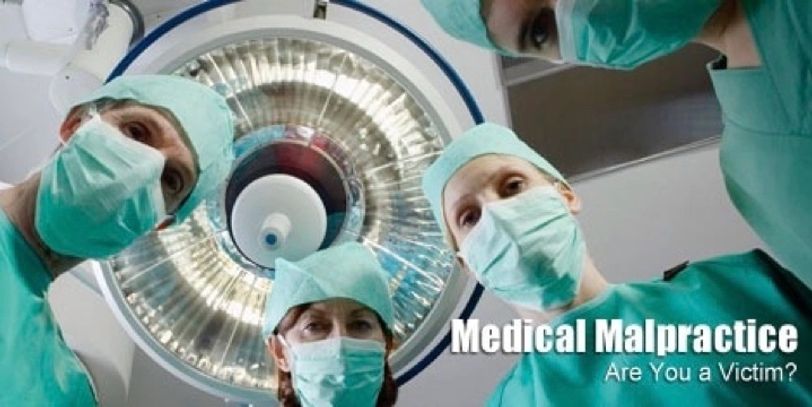Our Lawyers help victims get Justice, Closure and Compensation.
California Medical Malpractice Lawyer
California Medical Malpractice Lawyer – Surgical & Diagnostic Errors

As a California medical malpractice lawyer, I represent patients and families harmed by negligent medical care. My cases include failure to diagnose, wrongful death, foreign objects left after surgery, medication errors, preventable falls, birth injuries, and eye injuries. I also handle botched cosmetic procedures such as breast augmentation, tummy tucks, facelifts, and liposuction. I work to hold doctors, surgeons, and healthcare facilities accountable for the life-changing harm caused by medical negligence."
Top 10 Steps to Take After a Medical Error in California
10 Critical Actions to Protect Your Rights After a Medical Error
If you suspect you’ve been a victim of medical malpractice, taking proactive steps can strengthen your case. Here are the top five things to do immediately:
- Request Your Medical Records: Obtain a complete copy of all relevant medical and billing records, including test results, treatment notes, and any imaging. These documents are critical for evaluating what went wrong and identifying potential negligence.
- Request Your Billing File: Your billing records often are not necessarily part of your patient file. Obtaining the billing for the medical service often sheds light on what the doctors are telling they did versus what they actually did (or are trying to get paid for)
- Document Everything: Keep a detailed journal of your symptoms, medical visits, treatments, and any communication with healthcare providers. Include dates, names of doctors, and specifics about how the injury has impacted your daily life.
- Seek a Second Opinion: Consult another qualified medical professional to confirm the error and assess whether different treatment could have prevented or mitigated harm. A second opinion can provide clarity and strengthen your claim. Do NOT mention lawsuits or lawyers in seeking further medical opinions.
- Preserve Evidence: Keep any physical evidence related to your injury, such as prescriptions, medical devices, or even photographs of visible injuries. This can be valuable in establishing the connection between the malpractice and your harm.
- Be Cautious with Communication: Avoid discussing your situation with the involved healthcare providers or their insurance representatives without legal advice. Any statements you make could potentially be used against you.
- Take Photos in the hospital or medical setting OF EVERYTHING.
- Request and Keep all of your Explanation of Benefits (EOB) correspondence from your Health Insurance Carrier
- Gather Witnesses: Identify anyone who may have witnessed the medical procedure or its aftermath, the most important being other healthcare workers. Their testimony could be helpful in establishing what happened. Get first and last names. There are many occasions that "helpful" witnesses (often nurses) do not appear in the medical records.
- Remain Calm and Professional: Avoid direct confrontations with healthcare providers or hospital staff. Any hostile interaction could complicate your case. Stay focused on collecting evidence and seeking professional legal guidance.
Taking these steps quickly can help protect your rights and provide the foundation for a strong medical malpractice claim.

Common Medical Malpractice Questions in California
Answers to Common Medical Malpractice Questions
As a Fresno medical malpractice attorney, one of the most common calls I receive involves a doctor’s failure to diagnose a serious condition. These cases can have devastating consequences for patients. A failure to diagnose occurs when a medical professional overlooks critical symptoms or fails to order necessary tests, allowing a condition to worsen unnecessarily.
For example, failing to diagnose cancer at an early stage can delay treatment and significantly reduce a patient’s chance of survival. However, not every missed diagnosis is legally actionable. To bring a valid medical malpractice claim, there must be causation — meaning the doctor’s error directly caused harm. If a condition such as an aggressive cancer would have had the same outcome regardless of when it was diagnosed, there may not be grounds for a lawsuit.
If you believe you’ve suffered harm from a diagnostic error in California, I can review your case and explain your legal option
Examples of Causation in Failure-to-Diagnose Cases
- Heart Attack Misdiagnosis – If a doctor ignores clear symptoms like chest pain or shortness of breath and the patient suffers preventable heart damage or death, causation exists. If the same damage would have occurred even with immediate treatment, causation may not be established.
- Missed Fracture Diagnosis – A patient with wrist pain after a fall is sent home without an X-ray. If the untreated fracture heals improperly, causing permanent loss of function that early treatment could have prevented, the doctor’s failure caused the harm. If the fracture heals correctly with no harm, causation is lacking.
- Stroke Symptoms Ignored – Early warning signs such as weakness or slurred speech are dismissed. If treatment delays lead to permanent brain damage that could have been avoided with timely intervention, causation exists. If the same level of damage would have occurred despite immediate treatment, there is no causation.
Why Causation Matters
Causation is a critical element in any California medical malpractice case. Without proving a direct link between the failure to diagnose and the harm suffered, a lawsuit may not succeed. An experienced Caliofnriamedical malpractice lawyer can investigate the facts, consult with medical experts, and determine whether your case meets the legal standard for causation

- Copyright 2025 Tower Law Office- All Rights Reserved.
Information only; not legal advice.